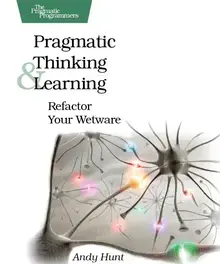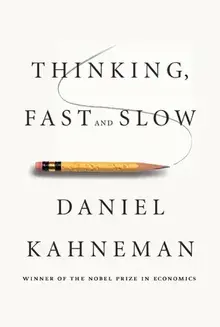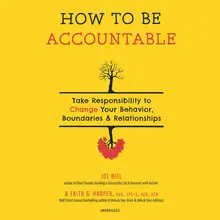Reflection
Reflection is the deliberate act of reviewing experiences to extract insight, validate assumptions, and adapt future behaviour. Regular reflection strengthens learning loops and clarifies priorities.
Below is an overview of content that matches the tag "reflection".
Note that this list is not exhaustive, as it is automatically aggregated based on manually assigned categorizations.
If you notice a missing element, or think some of the items are wrongfully categorized, please create a bug/improvement ticket on our github issue tracker.
Patterns tagged with "Reflection"
problem:You often struggle with deciding what to do next, feeling uncertain about which choice would be most beneficial for you.
description:Use a systematic framework to make informed decisions by evaluating your resources — Support, Time, Energy, Attention, and Money.
Books tagged with "Reflection"
Holiday, R. (2016) Ego Is the Enemy. Portfolio. isbn: 978-1591847816.
Ego Is the Enemy translates Stoic principles into modern stories about ambition, humility, and resilience. Holiday draws from historical and contemporary case studies to show how unchecked ego can derail careers, teams, and personal growth. The blend of inspiration and cautionary tales invites readers to ask whether they want to do something meaningful or simply be seen as important.
Pragmatic Thinking and Learning
Refactor Your Wetware
Hunt, A. (2008) Pragmatic Thinking and Learning. The Pragmatic Bookshelf. isbn: 978-1934356050.
Pragmatic Thinking and Learning examines how developers can harness the way their brains absorb and apply new ideas. Andy Hunt shares techniques from decades of practice—ranging from deliberate experimentation to reflective journalling—to keep skills sharp. It treats learning as the professional’s main tool, encouraging readers to tailor habits and discover systems that fit their own preferences.
Kahneman, D. (2011) Thinking, Fast and Slow. Farrar, Straus and Giroux. isbn: 978-0374275631.
Thinking, Fast and Slow distils decades of behavioural research into the dual-system model of thinking. Daniel Kahneman explains common cognitive biases, how they influence judgement, and how to design decisions that counteract them. It is essential reading for anyone who wants to understand how people perceive risk, value, and evidence.
Harper, F. G.; Biel, J. (2020) How to Be Accountable. Blackstone Publishing. isbn: 978-1665036573.
How to Be Accountable explains what meaningful accountability looks like in personal and professional relationships. F. G. Harper and J. Biel blend psychological insight with exercises for noticing patterns, making amends, and rebuilding trust. It is a supportive guide for people who want practical steps toward integrity and repair.
Argyris, C. (1991) Teaching Smart People How to Learn. Harvard Business Review.
Chris Argyris explains why highly skilled professionals often resist feedback and how facilitators can create space for double-loop learning. He shares interventions coaches can use to surface reasoning, challenge defensive routines, and turn setbacks into shared insight. The essay remains essential for leaders guiding experts through change.





